The Institute for Policy Integrity produces a variety of publications. Our research reports develop in-depth research on our core issues, while our policy briefs and issue briefs provide focused analysis on more timely or particular topics. Our academic articles and working papers offer original scholarly research and analysis from established experts as well as fresh new voices.
Latest Publications
-
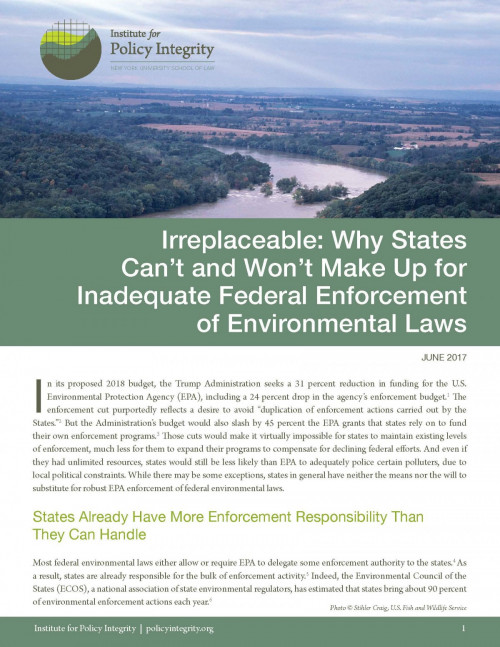
Irreplaceable: Why States Can’t Make Up for Inadequate Federal Enforcement of Environmental Laws
Budget cuts threaten EPA’s ability to enforce federal environmental laws, and states have neither the means nor the will to substitute for it. Our issue brief on EPA enforcement explores the financial and political constraints that state regulators already face when implementing federal environmental laws and how the Trump Administration’s budget cuts would exacerbate these problems.
-
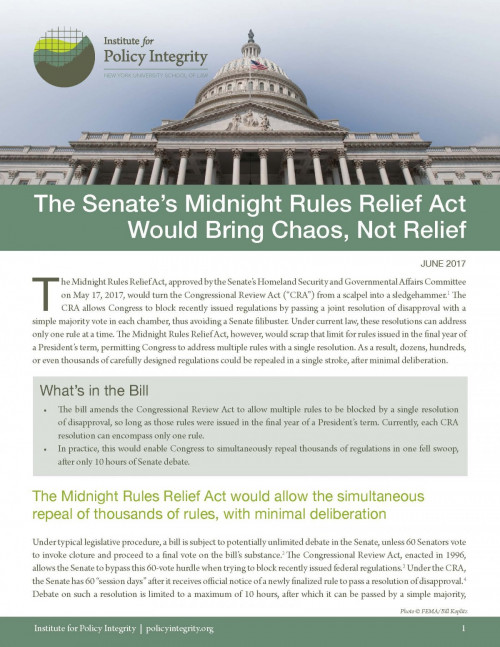
The Senate’s Midnight Rules Relief Act Would Bring Chaos, Not Relief
The Midnight Rules Relief Act, approved by the Senate’s Homeland Security and Governmental Affairs Committee on May 17, 2017, would turn the Congressional Review Act (“CRA”) from a scalpel into a sledgehammer. Our issue brief describes how this shift in regulatory policy would allow for quick repeals of public safeguards after only 10 hours of Senate debate and prevent similar rules from being enacted in the future.
-
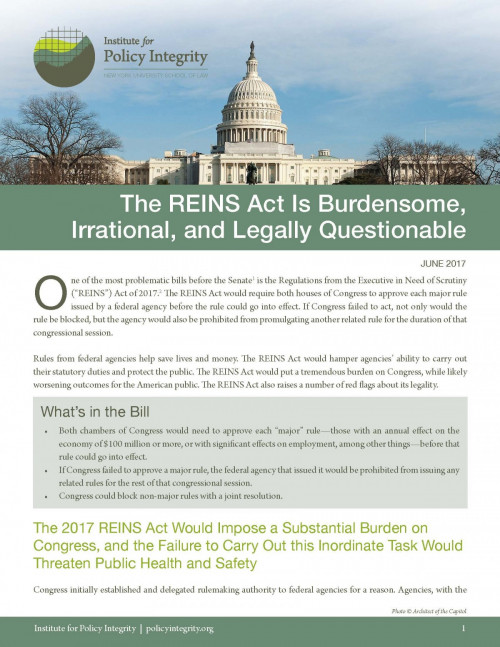
The REINS Act Is Burdensome, Irrational, and Legally Questionable
The Regulations from the Executive in Need of Scrutiny Act (“REINS Act”) would prevent agencies from issuing statutorily required rules unless approved by Congress. Our issue brief describes how this bill would create substantial burdens for Congress, worsen outcomes for the American public, and raise constitutional red flags by allowing Congress to repeal earlier statutes through inaction.
-
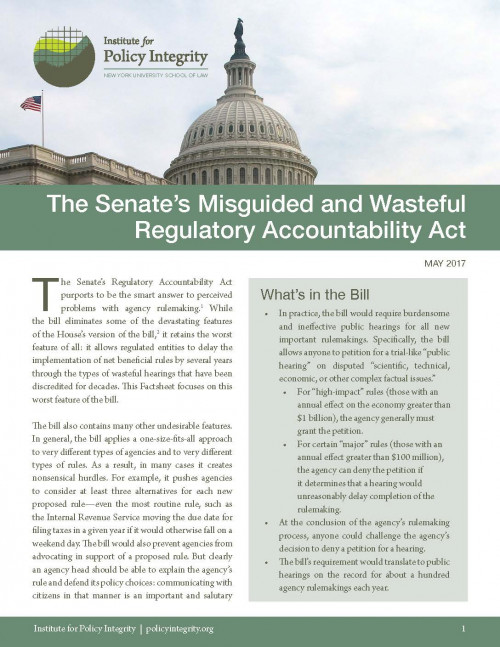
The Senate’s Misguided and Wasteful Regulatory Accountability Act
The Senate’s Regulatory Accountability Act would rewrite notice-and-comment rulemaking procedures and create extraordinarily burdensome hurdles in rule implementation by requiring trial-like public hearings. Our issue brief describes how this change to regulatory reform would give opponents of major public safeguards a valuable tool to delay implementation for years, without any regard to the harm that delay would impose on the health and safety of the American public.
-
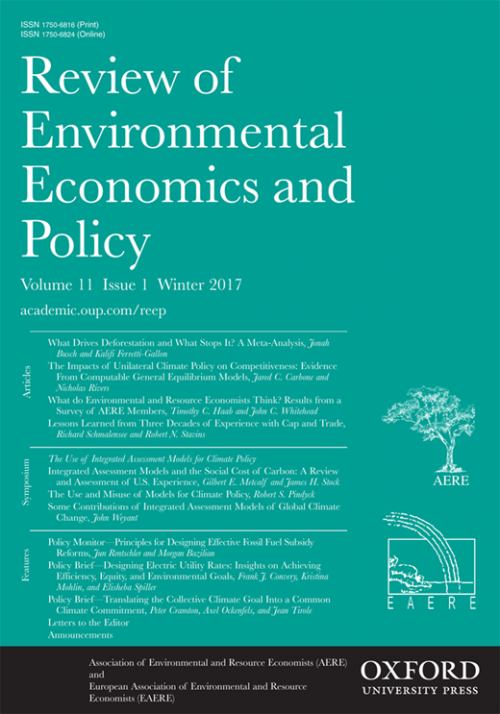
The Social Cost of Carbon: A Global Imperative
To solve the unprecedented global commons problem posed by climate change, all nations must internalize the global externalities of their emissions. If not, collective efforts will never achieve an efficient, stable climate outcome. The United States’ practice of looking at the global impact of emissions has come under attack in courtrooms and academic journals, with some arguing that the U.S. should instead consider only the domestic impacts of climate change in its decisionmaking.
In a letter published in Review of Environmental Economics and Policy, we argue that federal agencies should continue to use a global number for Social Cost of Carbon, as developed by the Interagency Working Group on Social Cost of Carbon. First, the United States benefits tremendously if other countries set policy based on global rather than local effects. From a legal perspective, not only does international law—the U.N. Framework Convention on Climate Change—commit the United States to account for global effects, but domestic laws like the Clean Air Act and the National Environmental Policy Act also either require or give discretion to agencies to consider global climate costs. Many seemingly “foreign” climate damages would actually spill over to harm the United States.
